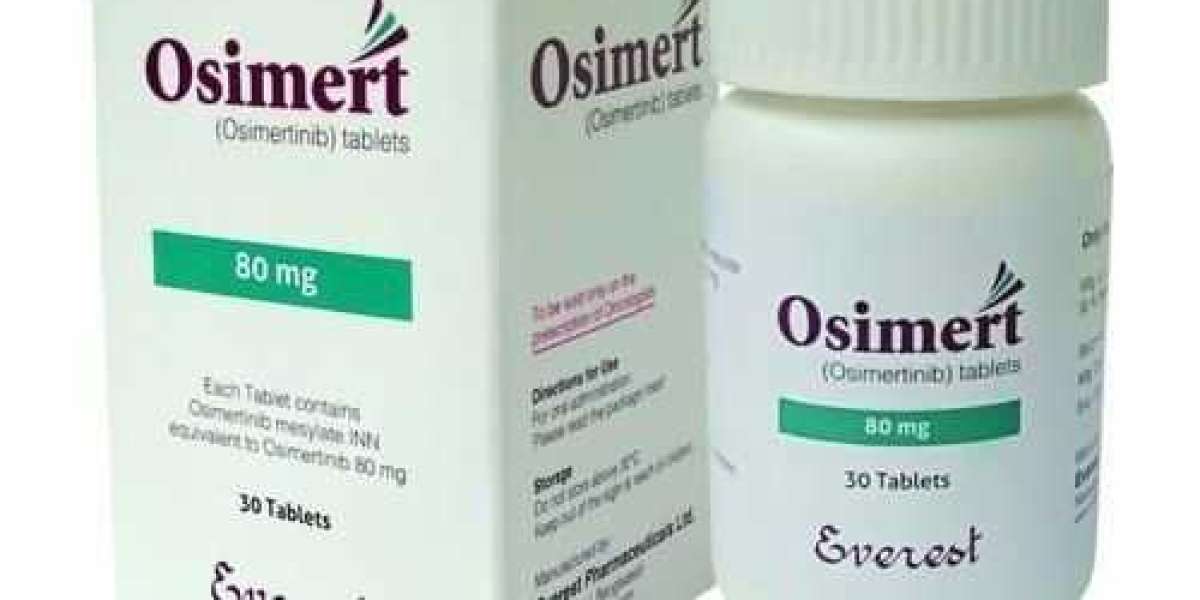Osimertinib, sold under the brand name Tagrisso, is a targeted therapy for non-small cell lung cancer (NSCLC) patients with specific genetic mutations. Osimert 80mg is the most commonly prescribed dosage of this drug, and many patients and their families have questions about its use, side effects, and efficacy. In this blog article, we will address some frequently asked questions about Osimertinib treatment to help you better understand this medication and its role in cancer management.
- What is Osimertinib, and how does it work?
Osimertinib is a third-generation tyrosine kinase inhibitor (TKI) that targets epidermal growth factor receptor (EGFR) mutations. Specifically, it targets the T790M mutation, which is present in approximately 50-60% of NSCLC patients who develop resistance to first and second-generation EGFR-TKIs. By inhibiting the mutated receptor, Osimertinib prevents the growth and spread of cancer cells.
- Who can benefit from Osimertinib treatment?
Osimertinib is prescribed for patients with metastatic NSCLC who have the EGFR T790M mutation. It is also approved for first-line treatment of patients with metastatic NSCLC who have specific EGFR exon 19 deletions or exon 21 L858R substitution mutations.
- How is Osimertinib administered?
Osimertinib comes in tablet form, and the standard dosage is 80mg taken once daily. Patients should take the medication on an empty stomach, at least one hour before or two hours after a meal. It is important to take the drug at the same time every day to maintain consistent levels in the body.
- How effective is Osimertinib?
Clinical trials have shown that Osimertinib is highly effective in treating EGFR T790M-positive NSCLC patients who have developed resistance to first and second-generation TKIs. The overall response rate (ORR) was 71%, with a median progression-free survival (PFS) of 10 months. For first-line treatment of patients with specific EGFR mutations, Osimertinib showed an ORR of 77%, and a median PFS of 18.9 months. However, individual results may vary, and it is essential to discuss treatment options and expectations with your oncologist.
- What are the common side effects of Osimertinib?
The most common side effects of Osimertinib include diarrhea, skin rash, dry skin, nail changes, and fatigue. Less commonly, patients may experience a reduced appetite, mouth sores, and eye irritation. Most side effects are manageable and can be addressed with over-the-counter medications or prescription drugs as recommended by your healthcare provider.
- Are there any serious side effects associated with Osimertinib?
Although rare, some patients may experience serious side effects, including interstitial lung disease (ILD), heart problems, and severe skin reactions. It is crucial to report any new or worsening symptoms to your healthcare team promptly, as early intervention can prevent complications.
- Can I take other medications while on Osimertinib?
Certain medications can interact with Osimertinib and affect its efficacy or increase the risk of side effects. Always inform your healthcare team about all medications, supplements, and over-the-counter drugs you are taking before starting Osimertinib treatment.
- Can I take Osimertinib if I am pregnant or breastfeeding?
Osimertinib can harm an unborn baby, and it is not recommended for use during








